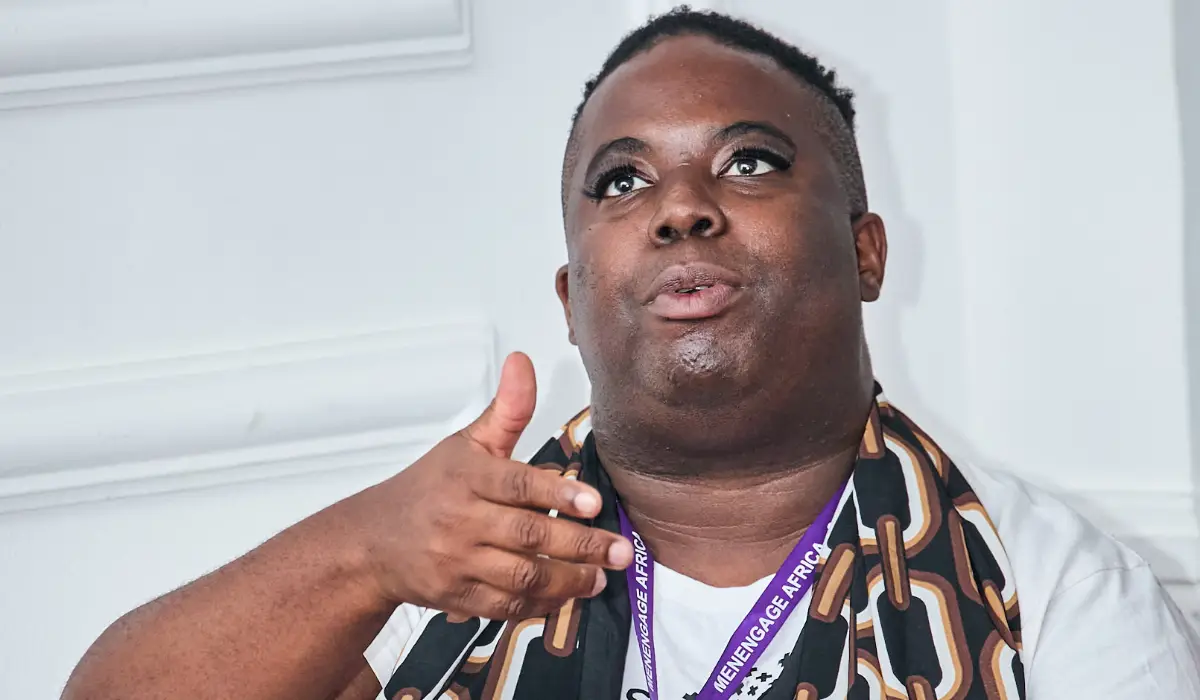I had the privilege to attend the MenEngage Africa Sexual and Reproductive Health Rights Learning and Exchange symposium in Nairobi, Kenya in August this year. I deem it a privilege, as it continues to be rare for grassroots activists to afford access or curate regional convenings, particularly in an anti-queer and elitist landscape. I was thrilled to be selected for one of the best practice poster presentations for youth, I could not imagine myself in such a position 5 years ago. That’s exactly how long it took for me to start blooming in my work.
The symposium provided an opportunity for me to reflect on the work and the challenges I faced in advancing SRHR activism. As an intersectional Feminist, I struggled to fit in with feminist-oriented spaces, as I did not fit the stereotypes of being trans or gender diverse enough, queer enough, young enough, institutionalised enough, audited enough, or pleasant enough.
I eventually realised how I have been accustomed to queer, and some feminist spaces to a fault. That despite critiquing how complex and repetitive issues may be, they were an echochamber of some of my thoughts, beliefs and politics. Every convening I have been to has been part of a broader common thread of similarities despite nuanced differences. While these felt familiar, they weren’t always safe or enabling. In some instances, they perpetuated some of the more harmful norms, practices and approaches that young activists often lament. The experience of Progress 2024 taught me the power of good discomfort within convenings and the importance of connecting with activists and development practitioners. The value of bringing activists and development practitioners together is the most impactful and transformational way to re-energise and connect with oneself.
The significance of bringing activists and development practitioners together remains the most impactful and transformative technique to re-energise and connect with oneself. I was happy to be around outstanding minds and other youngsters at the vanguard of SRHR work, whether it was through an illuminating exercise, a corridor side talk, or sharing a drink. Keeping a few things to myself would be unjust. I include them below as essential lessons to inspire other forms of connecting and action for a better, universal, and intersectional health and human rights environment in Africa.
Key takeaways from the symposium include community structures, HIV infrastructure, partnerships among youth-led organizations and initiatives, the breadth and depth of diverse change makers, and the policing of women’s bodies.
Community structures are essential for ensuring impact and sustaining progress in SRHR activism. Increasing investments in diverse grassroots, emerging African youth groups, collectives, and movements is crucial for guaranteeing business as usual.
HIV infrastructure and investments remain key catalysts for progress in strengthening health systems, advancing universal health coverage, and ensuring the inclusion of communities often left behind in broader SRHR efforts.
Young Africans are not a monolith, and harnessing partnership models among strictly youth-led organisations and initiatives can ensure lessons learned can be institutionalised. This will allow for more organic and innovative approaches to solutions building without compromising autonomy and self-determination that institutionalisation and funders normatively impose under the guise of resource mobilisation, coalitions, and NGO-ization.
There are always experts in the room. The coming together for a convening such as PROGRESS 2024 must not discount the breadth and depth of diverse change makers, as we have all diagnosed the challenges and problems our communities face. We should encourage better ways of bringing people together outside of panels and lighting talks to elicit business unusualness. Pedagogical, experimental and community-centric solutions are needed too.
The policing of women’s bodies and agency in sexual and gender rights activism is not the only cause of phobias against diversity. Powerful figures, including enablers, funders, NGOs, and development practitioners, often underestimate activists who challenge their frameworks and theories.
The work to advance SRHR is never done, and communities must connect with others and redefine how to navigate their work in service of others. Enablers from government, development partners, philanthropists, and peers must remind them that the work has no end point, and gains must be guarded, scaled, and strengthened to ensure no one is left behind in fulfilling SRHR commitment.
Dumiso Gatsha (they/them/their) is the founder of Success Capital Organisation, a grassroots intersectional feminist NGO working in the nexus of human rights and sustainable development linking grassroots experience with regional and global policy making mechanisms.

